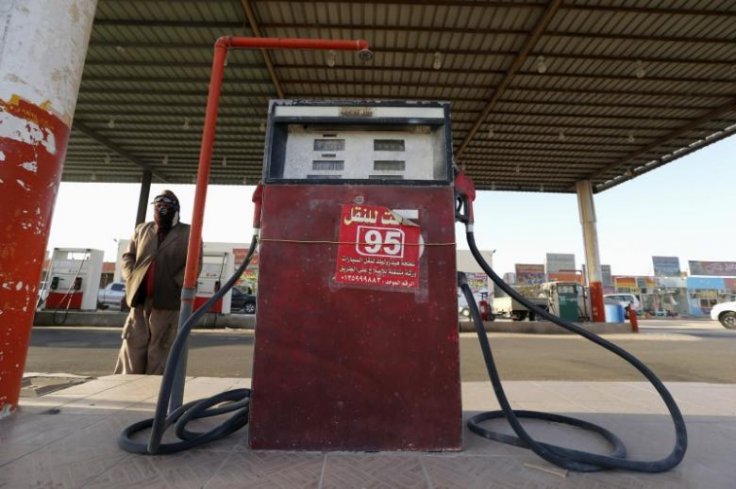
Saudi Arabia has announced a slew of austerity measures including suspending the cost of living allowance for state employees and increasing the value-added-tax (VAT) to mitigate the financial impact on its economy caused by the coronavirus pandemic and the record slump in global oil prices.
As part of the measures, the Saudi government has decided to triple the VAT from 5 per cent to 15 per cent starting July 1 and suspend cost of living allowance, including revising salaries of state employees from June 1 onward, the Saudi Press Agency reported on Monday, May 11.
"The cost of living allowance will be suspended as of June 1, and the value added tax will be increased to 15% from 5% as of July 1," the kingdom's Finance Minister Mohammed Al-Jadaan said in a statement.
The measures are said to be part of the kingdom's efforts to shore up its finances which have been impacted by the pandemic and low global oil prices.
Measures valued at 100 billion riyals
By implementing the measures and rationalising spending, Saudi Arabia is expected to generate at least 100 billion riyals (approximately $26 billion).
"These measures are painful but necessary to maintain financial and economic stability over the medium to long term ... and to overcome the unprecedented coronavirus crisis with the least damage possible," the finance minster said.
VAT and cost-of-living allowance in Saudi
The kingdom introduced a 5 per cent value added tax on commodities about two years ago as part of its efforts to lower its reliance on crude oil revenues.
In 2018, Saudi Arabia's King Salman bin Abdulaziz Al Saud, introduced a monthly allowance of 1,000 Saudi riyals (approximately $267) to every state employee to help offset the rising cost of living and financial burden after the government hiked domestic gas prices and introduced VAT.
Nearly 1.5 million Saudi nationals are employed in the government sector as of December 2019. The ministry of finance has said that a committee formed to study the financial benefits of the public sector employees and contractors will submit recommendations within 30 days.
The latest decision comes after the finance minster warned last week that Saudi Arabia would have to take "strict and painful measures," to deal with the double impact of the pandemic and falling oil prices.
"We must reduce budget expenditures sharply," Al-Jadaan had said last week, adding that some government projects may have to be slowed down to reduce expenditure.
"Current actions taken to date to cut spending are not enough, and Saudi public finances will need more control and the journey ahead is long."
The austerity measures also come after the kingdom's spending outstripped its income, with the kingdom posting a $9 billion budget deficit in the first three months of the year. This comes as oil revenues in Q1 2020 fell by almost a quarter from the same period last year to $34 billion, pulling down total revenues by at least 22 per cent year on year. At the same time, Saudi Arabia's central bank saw its foreign reserves fall in March at their fastest in two decades and to their lowest levels since 2011.
Al-Jadaan had earlier said he expected Riyadh could lose half of its oil income, which contributes to roughly about 70 per cent of the public revenues, as oil prices around the world have fallen two-thirds since January this year. He said the world's biggest oil exporter was looking to borrow around $60 billion this year to cope with the huge budget deficit.
The latest austerity measures are expected slow the pace and scale of economic reforms in the country launched by the Crown Prince Mohammed bin Salmanand delay a lot of projects.
The government has reportedly cancelled or delayed some of the operating and capital expenditures for some government agencies and cut allocations for a number of Saudi Arabia's VISION 2030 reform programs initiatives and mega projects valued at around 100 billion, according to the statement.
Dwindling oil revenue
Saudi Arabia's economy largely depends on crude oil, and the kingdom is the world's largest oil exporter. Almost 70 per cent of the kingdom's revenue is said to come from oil. However, the economy took a massive blow due to the falling prices and a demand crunch all over the world due in part to the coronavirus pandemic and the resultant lockdowns. The International Monetary Fund (IMF) had in April projected the Saudi economy to fall 2.3 per cent this year.
In April, the Organisation of the Petroleum Exporting Countries (OPEC) said the coronavirus had resulted in "unprecedented" worldwide oil demand shock.
Last year, Saudi Arabia raised a record $25.6 billion in initial public offering shares in state-owned oil giant Aramco in Riyadh. This step was seen as yet another of Bin Salman's plans to modernize the economy and lower the kingdom's dependency on oil.
Aramco lowers gas prices
Aramco announced on Monday, May 11 that it will be slashing domestic gas prices for May, effective immediately. The price of 91 grade will drop from 1.31 riyals per liter to 0.67 riyals and that of 95 grade from 1.46 riyals to 0.82 riyals per liter.
However, despite all the austerity measures, several social media users, especially on Twitter, a platform favored by government supporters, posted pictures of the de facto ruler Salman pledging their support and saying "this crisis will pass soon."









